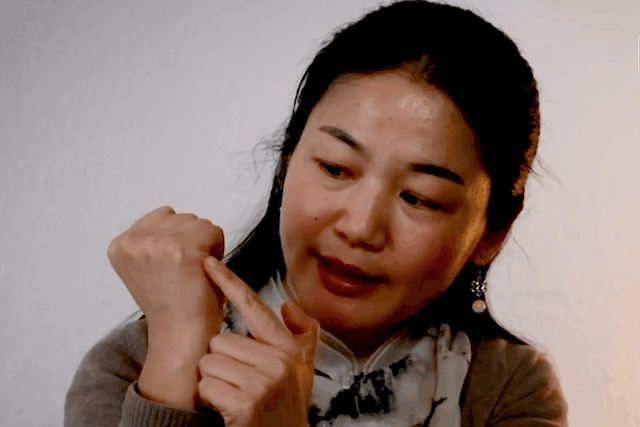Juan Wen is a specialist in tui na, a Chinese therapy which literally means “push and grasp”. In tui na, practitioners celebrate ancient Taoist tradition and use a range of motions--sometimes gentle, sometimes rather firm--to stimulate acupressure points.
“Acupressure massage is a very natural and effective method to help our body [activate] the important points and increase yang energy,” Wen says, adding that it’s also key to “keep the balance of yin and yang energy.”
She advises, for example, activating the “bai hui” point on the crown of the head first thing in the morning to help increase yang energy, which rises in any case in the morning:
Eight principles in balance
Wen is originally from Hunan province in south central China, but she has called the grand duchy home since 2007. Back then, she worked as an assistant for the sales department responsible for the Asian market at a local automotive company, but she noticed that while she was working in the office environment that her neck, back and shoulders were in pain regularly.
It was for this reason that she “went back to China, did Chinese traditional treatments and recovered,” she says, after which time she become even more interested in TCM more broadly and tui na massage more specifically.
Tui na practitioners aim to get the eight principles of TCM into balance, utilising other practices, such as t’ai chi, herbalism and qigong (among others).
Wen runs her own studio now in Luxembourg City but also visits China regularly to stay up-to-date on her practice. Many of her clients also have office jobs, but she shares acupressure tips on how they can help deal with issues like lower back pain or digestive issues.
She also regularly devotes herself to tai chi. This summer, she is organising lunch break sessions in the Pétrusse so others can experience tai chi in nature. And in March her tai chi training course kicks off at the Confucius Institute at the University of Luxembourg.
“Tai chi is an very ancient sport activity in nature in China,” she says. Movements are soft, she adds, which “help to [activate] our qi [energy] and blood.”
